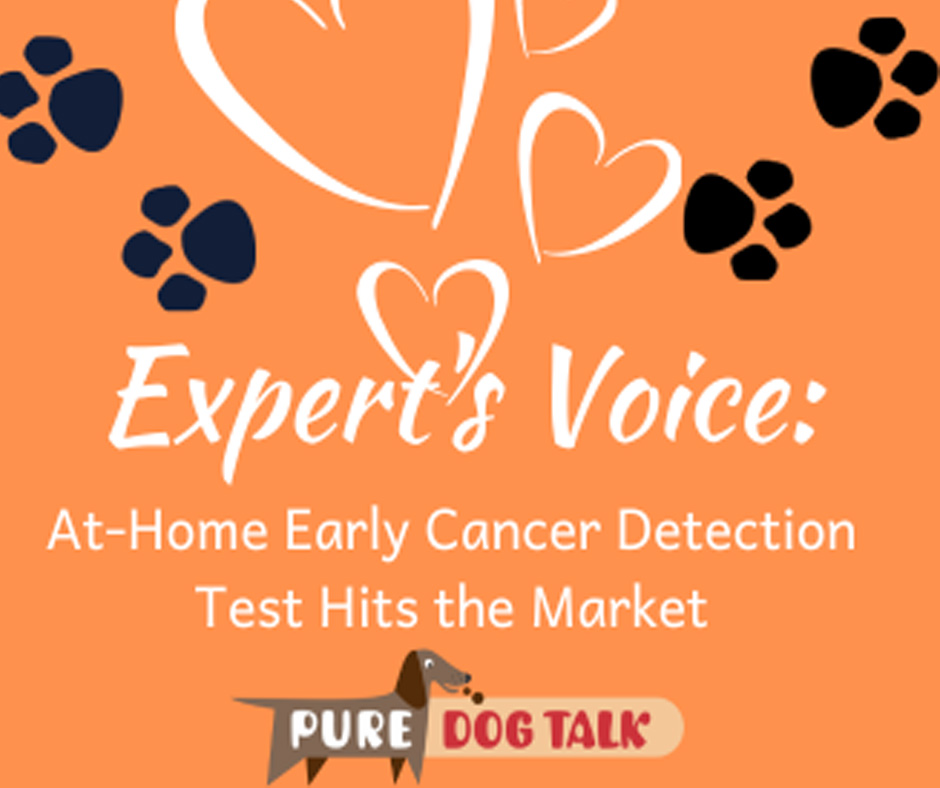624 – At-Home Early Cancer Detection Test Hits the Market
At-Home Early Cancer Detection Test Hits the Market
Chan Namgong, founder of Oncotect, joins host Laura Reeves for a very personal discussion of the value of early cancer detection for our dogs.
Namgong launched his company in 2019 in the aftermath of his mother’s cancer diagnosis. He already knew that dogs can detect human cancer by scent. But then he learned about a group of scientists that discovered that small nematodes can detect cancerous metabolites in urine in human medicine.
“What’s amazing about these small nematodes is that they have very high sense of smell,” Namgong said. “They have more olfactory receptors than dogs, despite their small size. So what we have done is we’ve developed a platform where we are using (nematodes) to detect cancerous metabolites in dogs’ urine that contains the cancerous metabolites.
“(Nematodes) are small worms, and the scientific name of them is C. elegans. And C. elegans is actually, you know, if you are a scientist or biologist, it’s a model organism. It’s widely used in different disciplines of science. In pharmacology, chemistry, biology, you know, cancer cells, stem cell research, environmental study, because we know everything about these worms. In fact, C. elegans was the very first multi-cell organism that was ever DNA sequenced. And the way we utilize them is we can actually measure the intensity of the olfactory neuron in their head.
“We can categorize pets as low, moderate or high risk of cancer. Oncotect is a screening test, not a diagnostic test. So, this is meant to be proactive and preventive measure. And then if there’s any risk, moderate or high risk, we’ll bring you back to your veterinarian for further consultation, diagnostic tests such as x -rays or ultrasound to really confirm or deny a cancer suspicion or to identify the type and location.
“Prevention of cancer is almost impossible because we don’t know what’s really truly causing cancer. But your best strategy is find it early and treat it quickly. Diagnosing a cancer is like a putting a puzzle together. You’ve got to bring different pieces of information to really look at a big picture.
“We have primarily focused on the four most common treatable canine cancers. They are lymphoma, melanoma, hemangiosarcoma and mast cell tumors. And the reason why we focus on those four is because just due to the limited resources that we have.
“We’ve tested over 700 dogs in the last year or so. And among those 700 dogs, we have detected TCC, bladder, prostate, liver, soft tissue. So we’ve detected other cancer types, but the reason why we are not making claims for them is because we haven’t run a large enough sample size to publish any scientific paper on them, which we plan to do this year.”
261 – AKC Doubles Your Cancer Research Dollars with a Matching Grant
AKC Doubles Your Cancer Research Dollars
More than 50 percent of dogs over 10 years old will be diagnosed with cancer. Dr. Diane Brown from AKC Canine Health Foundation wants to change that statistic.
AKC has pledged $250,000 in matching funds this year toward research into prevention, early diagnosis and treatment of all cancers in dogs. This enables individuals and clubs who donate to the matching fund to literally double the impact of every dollar.
Age is not a disease
“Age is not a disease,” Brown said. “There are quality of life issues to consider, but I believe we can get to a point of treating older dogs.”
Since people and dogs are affected by the same types of cancers, much of the research being done can be applied in what Brown describes as comparative oncology.
Prevention and Detection
In the prevention category, some cancer vaccines are a reality today and more are being studied. A melanoma vaccine is on the market now, Brown said.
Early detection of cancer saves lives in dogs and in people. Current research is looking at markers circulating in the dog’s system identified in blood samples that indicate increased risk for a specific disease.
Investing in personalized medicine is the wave of the future, Brown said. Using immunotherapy that is individualized for each dog is a very real possibility. She added that within five years many of these options will be realistically available.
Visit the AKCCHF crew on the west coast at the Beverly Hills Dog Show March 2-3. Brown encouraged visitors to share their stories and their questions.
Visit the AKCCHF website to learn more. And listen to past episodes with Brown to hear details on some of the research studies being conducted, particularly regarding epigenetics and hemangiosarcoma


